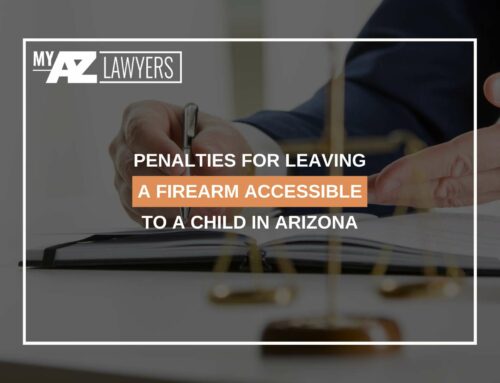Table Of Contents
A Guide to Alimony: When Will I Start Receiving It?
Alimony is one of the terms for financial support paid from one spouse to another after a divorce, which can be used interchangeably with spousal maintenance and spousal support. Contrary to some commonly held beliefs, a wife is not necessarily entitled to alimony after a divorce, and a husband can be awarded alimony in divorce too. Alimony isn’t meant to reward one spouse for their conduct during the marriage or divorce proceedings. It is meant to help the lower-earning spouse maintain a similar lifestyle to what they enjoyed during the marriage. If one spouse relied on the other for financial support, alimony can bridge the gap while the lower-earning spouse receives education or training to get by on their own. Are you involved in a divorce or legal separation where alimony will be at issue? Invest in your legal interests by hiring a skilled attorney- call 480-470-1504 or contact us for your free consultation with the divorce team at My AZ Lawyers today.

Temporary Spousal Maintenance
Alimony can be ordered for a number of years or the rest of either spouse’s lifetime, but it can also be ordered for a short period of time to avoid loss and confusion while the divorce proceedings are pending. If you are the spouse seeking temporary alimony, this could be crucial to maintaining your family’s well-being while figuring out your next move after the end of your marriage. If you are the spouse who is being sought to pay temporary maintenance, your budget may already be tight due to the divorce and this could set a standard of what the permanent orders should be. Therefore, it is important to put just as much effort into obtaining favorable temporary alimony orders as it is to obtaining permanent alimony orders.
It can take quite a while to determine if alimony should be paid, and how much is appropriate. During many divorces, waiting this long to provide financial support in the meantime could be devastating to the spouse receiving support. The family could be in an emergency separation situation due to domestic violence and other factors. A restraining order, temporary or permanent, doesn’t disqualify a spouse from receiving temporary alimony during a divorce. Have more questions about obtaining temporary support orders during a divorce in Arizona? Contact our firm for your free consultation at 480-470-1504 or contact us.
Permanent Alimony
As the name suggests, alimony is financial support that continues not just for a few months while divorce proceedings are pending, but for several years or even the rest of the divorcing spouses’ lives. When alimony is ordered for life, it continues until and unless the recipient spouse remarries, at which point alimony terminates.
Alimony, or spousal support or maintenance, is governed by A.R.S. § 25-319 in Arizona. There are five conditions under which it is appropriate for a court to grant one spouse alimony after a divorce in Arizona:
- Even after property division, the spouse seeking support lacks the resources to adequately provide for their own reasonable needs;
- The spouse seeking support lacks the earning ability in the current labor market to become self-sufficient;
- The spouse seeking support cares for a child whose age or condition warrants them staying at home;
- The spouse seeking support has contributions or sacrifices at the expense of their own earning ability to support their spouse’s career; and
- The marriage was of long duration so that it may be unrealistic for the spouse seeking support to become self-sufficient at their age.
If one or more of these five factors is present, the court is more likely to award a spouse going through divorce alimony. Once it is determined that alimony is indeed appropriate, there are a number of factors that can affect how much support is necessary. They are:
- The standard of living during the marriage;
- The duration of the marriage;
- The age, employment history, earning ability, and physical and emotional condition of the spouse seeking alimony;
- The ability of the other spouse to provide for their own needs while also paying alimony;
- The comparative financial resources of each spouse, including their comparative earning abilities in the labor market;
- The contribution of the spouse seeking alimony to the other spouse’s earning ability;
- The extent to which the spouse seeking alimony reduced their own career opportunities for their spouse’s benefit;
- The ability of both spouses after the divorce to contribute to the future educational costs of their mutual children;
- The financial resources of the spouse seeking alimony, including their marital property, and their ability to meet their needs independently;
- How long it will take the spouse seeking alimony to receive education or vocational training sufficient to find appropriate employment;
- Excessive or abnormal expenditures, destruction, concealment, or fraudulent disposition of marital property;
- The cost of the spouse seeking alimony to obtain health insurance and the reduction in cost of health insurance for the breadwinner spouse after the divorce;
- All actual damages and judgments from conduct that resulted in criminal conviction of either spouse in which the other spouse or a child was a victim.
Is Child Support Included in Alimony?
You may be wondering if child support is included in the amount a spouse is ordered to pay as alimony. You should know that in Arizona, these two types of financial support are separate. One spouse can be ordered to pay another spouse alimony regardless of if they have children together. A divorced spouse could also be ordered to pay child support but not alimony. It will all depend on the specific factors at play. Child support is meant to financially provide for a child, not the child’s parent, which is the purpose of alimony.
The two main factors used to calculate child support are each parent’s income and how much parenting time they have. Each spouse’s income is considered for alimony determinations, but parenting time, or physical custody, of any shared children after a divorce is irrelevant. The factors listed above for alimony determinations won’t be relevant when determining child support. If you are seeking or being sought for either type of financial support after a divorce, you should retain skilled representation to handle your case. The family law team at My AZ Lawyers offers seasoned guidance in Arizona divorce matters and free initial consultations- contact us or call 480-470-1504 to schedule yours today.
How Long Does It Take To Start Receiving Alimony?
Finalizing alimony orders can take several months, and some divorcing spouses even spend years fighting over it. But once the spouses come to an agreement or receive orders from the court regarding alimony, it will not take long for the payments to start. Alimony be ordered as a lump-sum payment and can sometimes even be ordered as weekly payments, but most often is ordered to be paid monthly. There are serious consequences if the spouse ordered to pay alimony doesn’t make their payments. The judge can hold them in contempt of court, a charge that can carry fines and even jail time. Do you need assistance in making sure you swiftly receive your alimony payments? Schedule your free consultations with the divorce team at My AZ Lawyers by contacting us or calling 480-470-1504.
Frequently Asked Questions
What are the other names for alimony?
Alimony is a term used interchangeably with spousal support and spousal maintenance.
Can my child support and spousal maintenance be lumped together?
No, child support and spousal support are two separate payments. Any changes that you need to be made must be requested separately through modifications. There are stricter collection methods available for child support.
Can the court change spousal support orders?
Either spousal can request a change in alimony through a petition to modify spousal maintenance. This petition must comply with state laws and include a statement of facts explaining why the petition has been submitted. The spouse filing the petition should show the court that their has been a substantial and continuing change in circumstances to warrant the petition being granted. When it comes to finances, a change of 10-15% is generally the minimum amount required to meet the court’s “substantial” factor. The condition causing the substantial decrease should also be long-lasting or permanent. For example, if someone were to sprain their ankle and need to take a few weeks off from their physical job, this would not be a long-lasting condition worthy of a spousal support modification. But if someone were to sustain a serious back injury requiring a change in career or leaving the workforce entirely, this would be a continuing change that might be substantial enough for the court to grant the petition.
Does the husband always have to pay the wife alimony?
Alimony can be paid by either spouse, regardless of gender. A wife could be ordered to pay alimony to her husband if she earns more than him and other factors warranting alimony payments are present. The same concept applies to child support payments as well.
Do I have to pay alimony if I keep paying for my ex’s other expenses, like a car loan or home mortgage?
Your continued financial support in these areas should be noted and presented to the court while making alimony determinations. Stopping paying on these types of bills could have negative financial impact on you, even if you no longer use the asset associated with the expense.
What happens if my ex misses an alimony payment?
If you reached your alimony orders through a settlement agreement, it may contain specific terms about what happens if alimony is paid late. There may be a grace period, or there could be a nominal fee for a late payment. If the payment is never made, the spouse receiving alimony will need to pursue collection through court-approved methods.
Can alimony payments be made directly through paychecks?
Some divorcing spouses initially set up their alimony plan to be through income withholding. Others will start a wage garnishment when the paying spouse has fallen behind or stopped making payments. Paying off a balance in arrears can also be worked into an income withholding alimony plan.
Dealing With Alimony & Other Issues Related To An Arizona Divorce? Contact Our Firm For Your Free Consultation
Alimony is just one of the several issues that you could be going back and forth on with your spouse during a divorce. An experienced divorce lawyer will make sure interests are fairly represented during all divorce proceedings. Whether your case requires careful negotiation or aggressive litigation at trial, our firm is prepared to meet your needs. The process starts with your no risk, no obligation consultation by phone. To schedule your free consultation with a member of My AZ Lawyers today for free, contact us or call 480-470-1504.
Published By:
Mesa Location:
1731 West Baseline Rd., Suite #100
Mesa, AZ 85202
Office: (480) 448-9800
Glendale Location:
20325 N 51st Avenue Suite #134, Building 5
Glendale, AZ 85308
Office: (602) 509-0955
Tucson Location:
2 East Congress St., Suite #900-6A
Tucson, AZ 85701
Office: (520) 441-1450
Avondale Location:
12725 W. Indian School Rd., Ste E, #101
Avondale, AZ 85392
Office: (623) 399-4222











